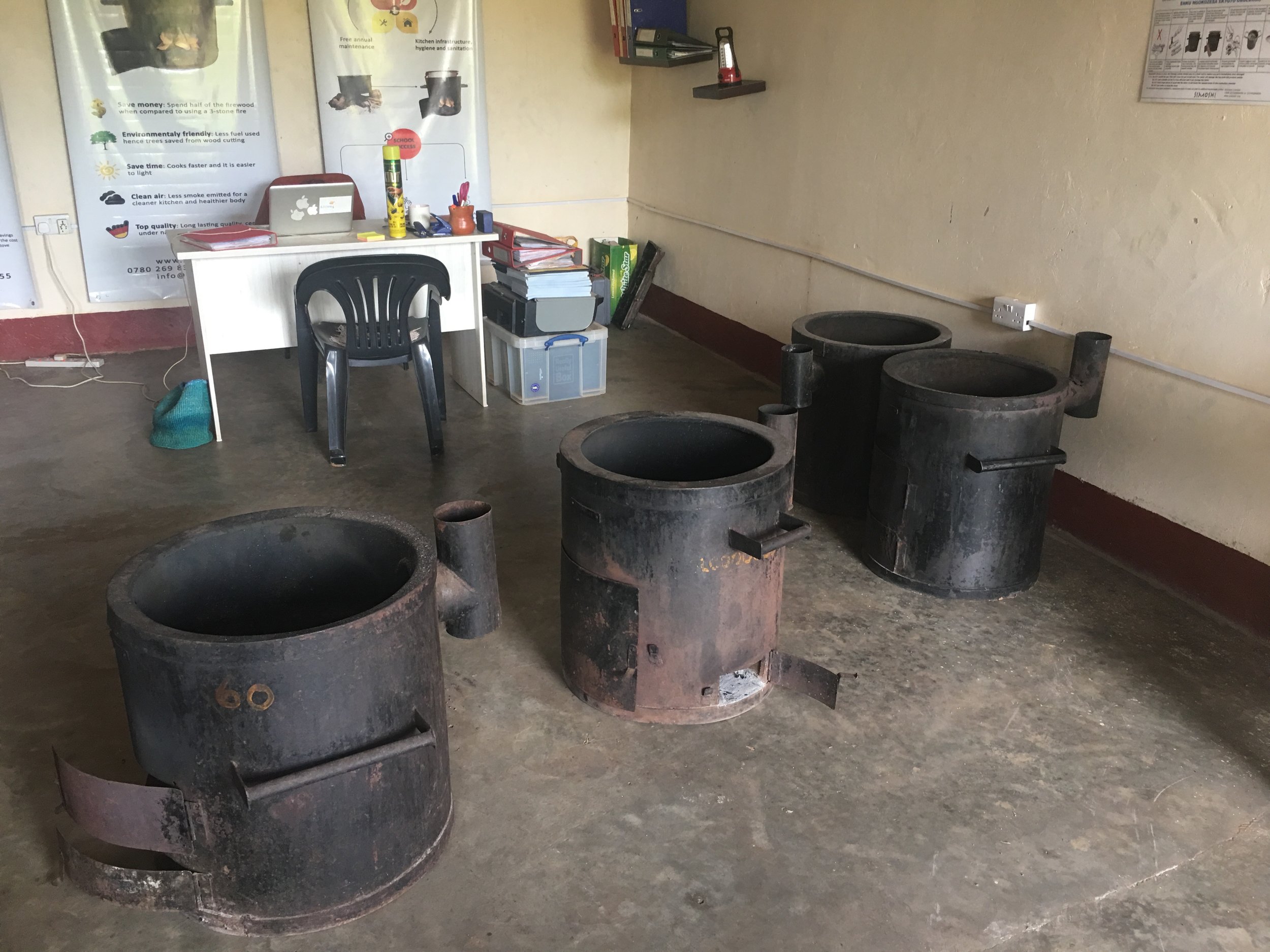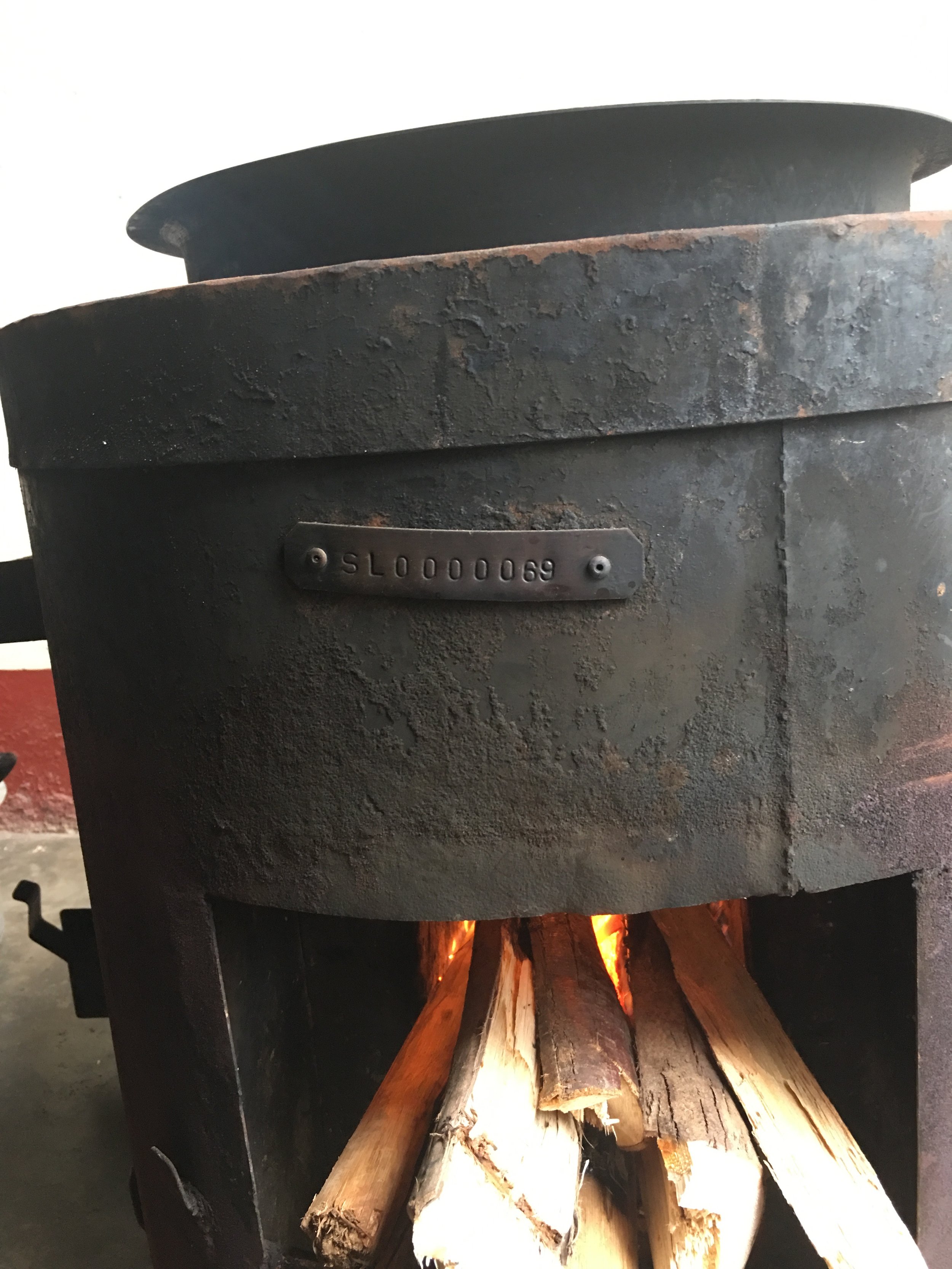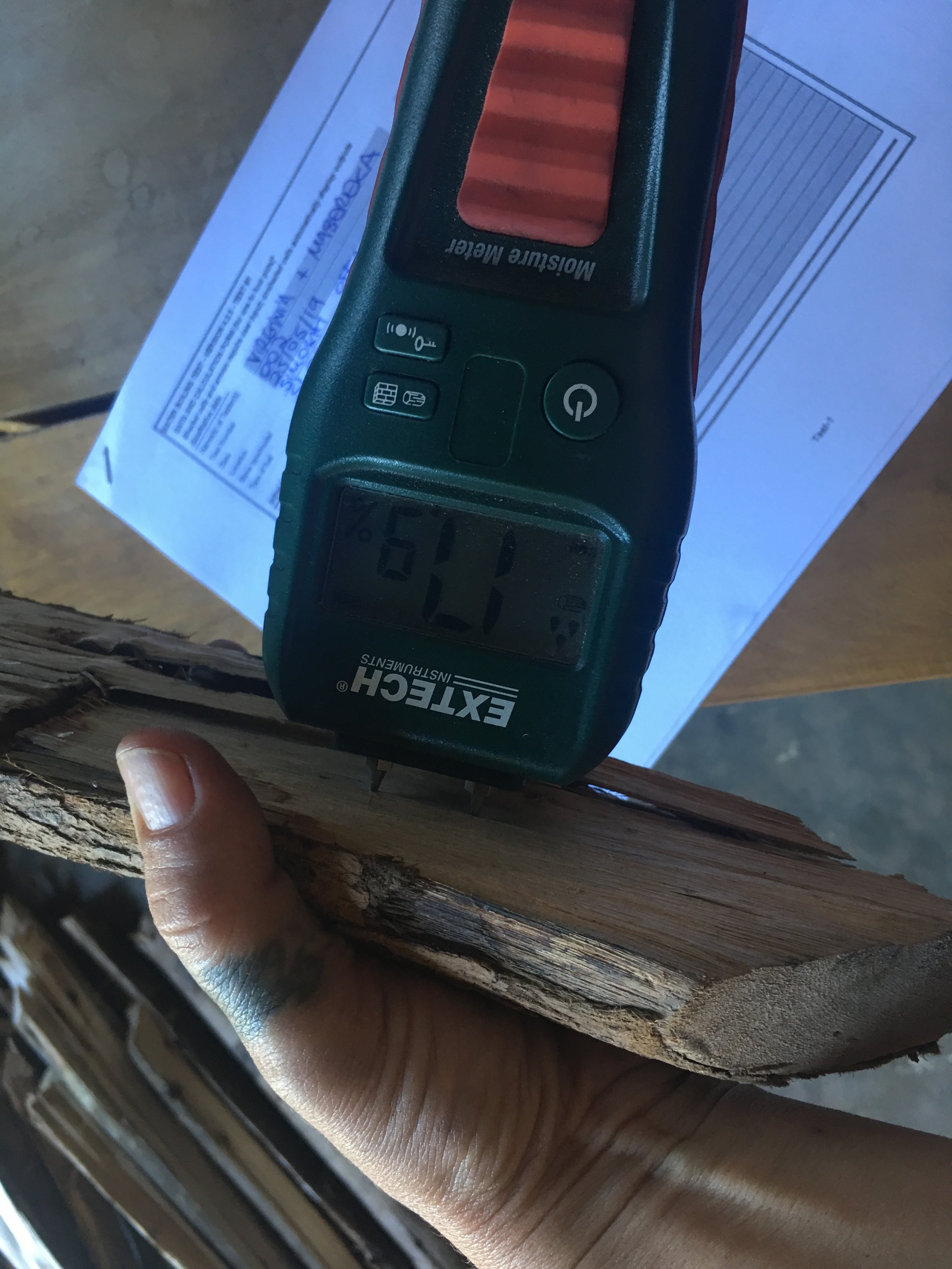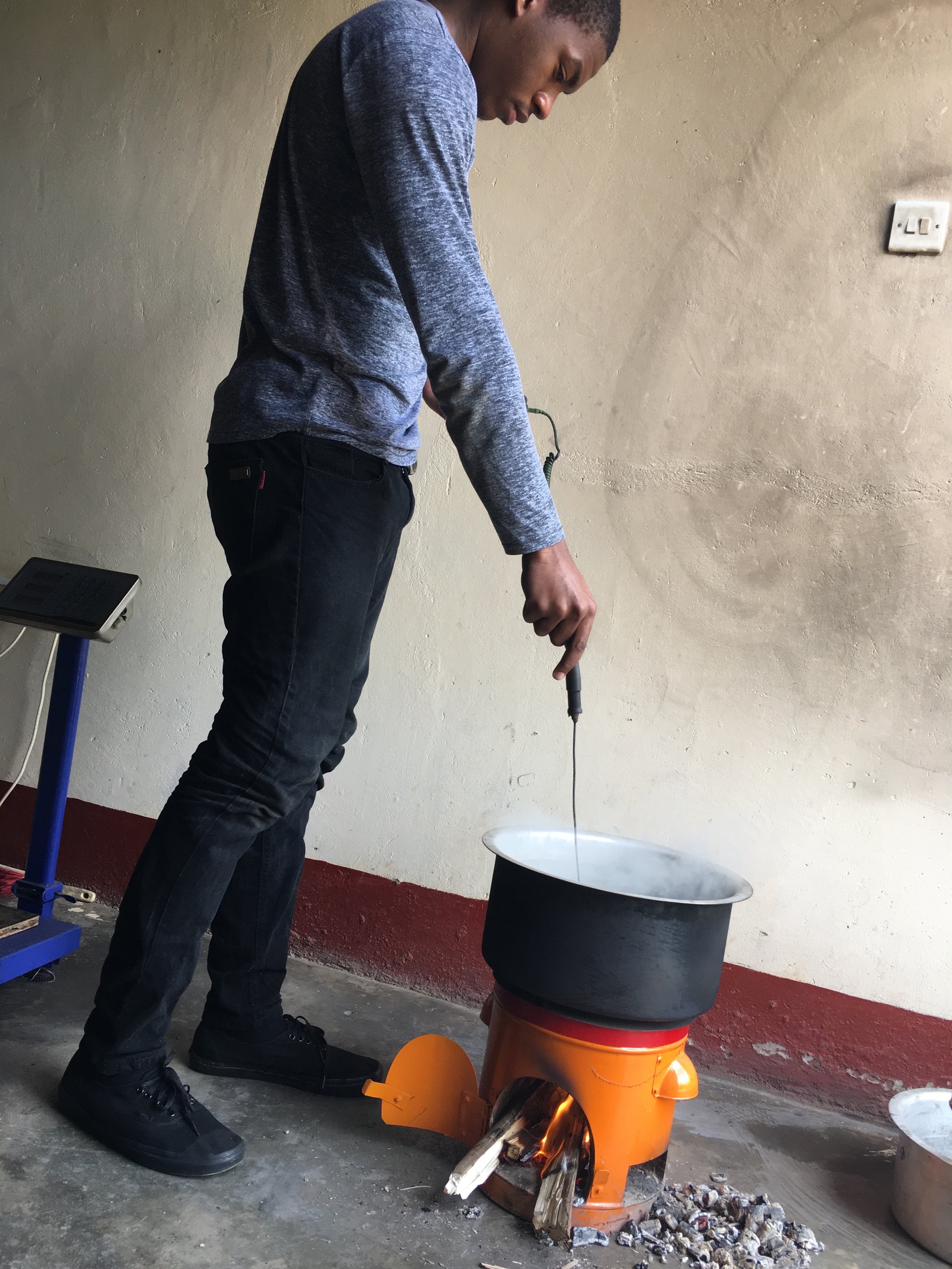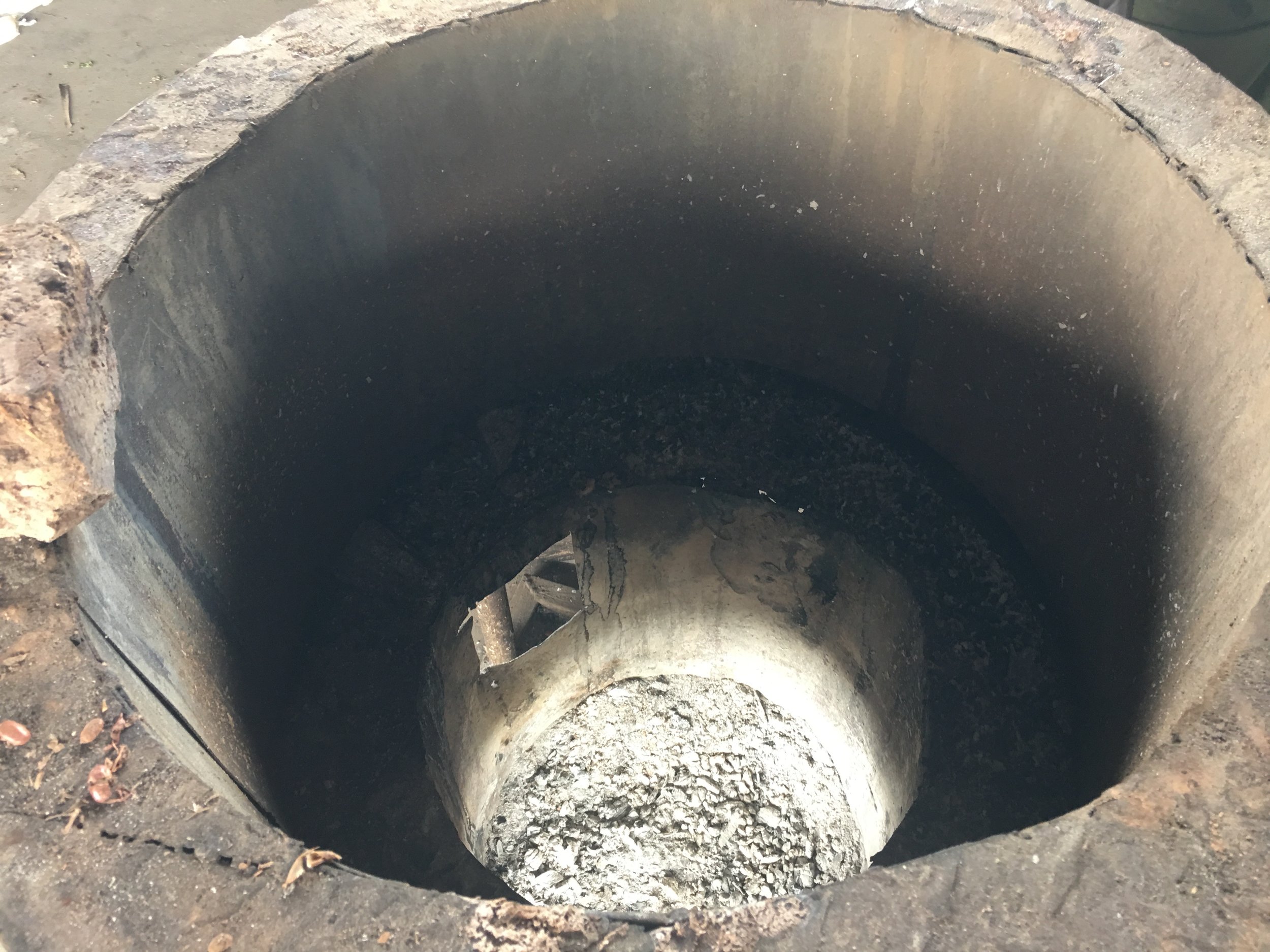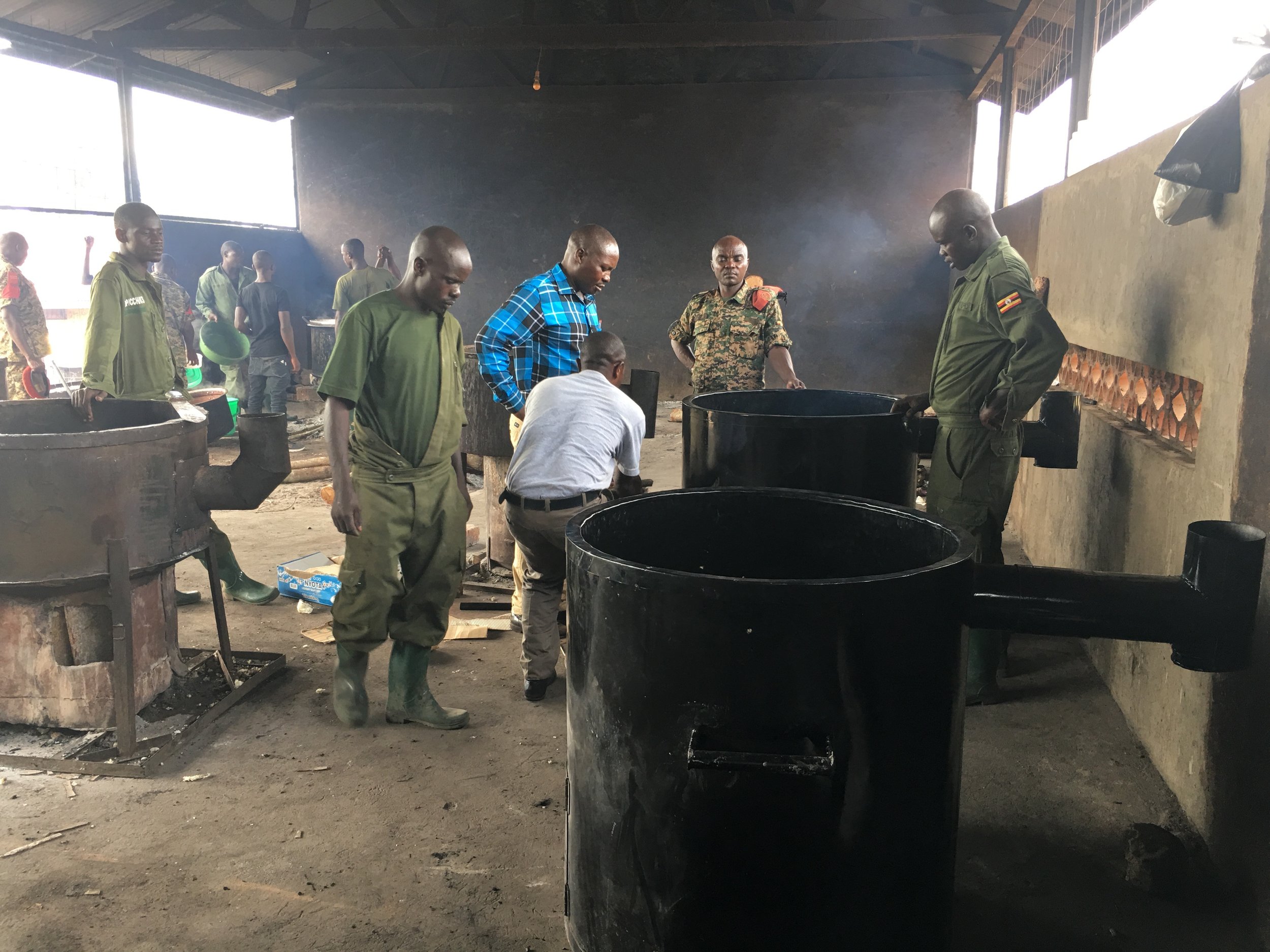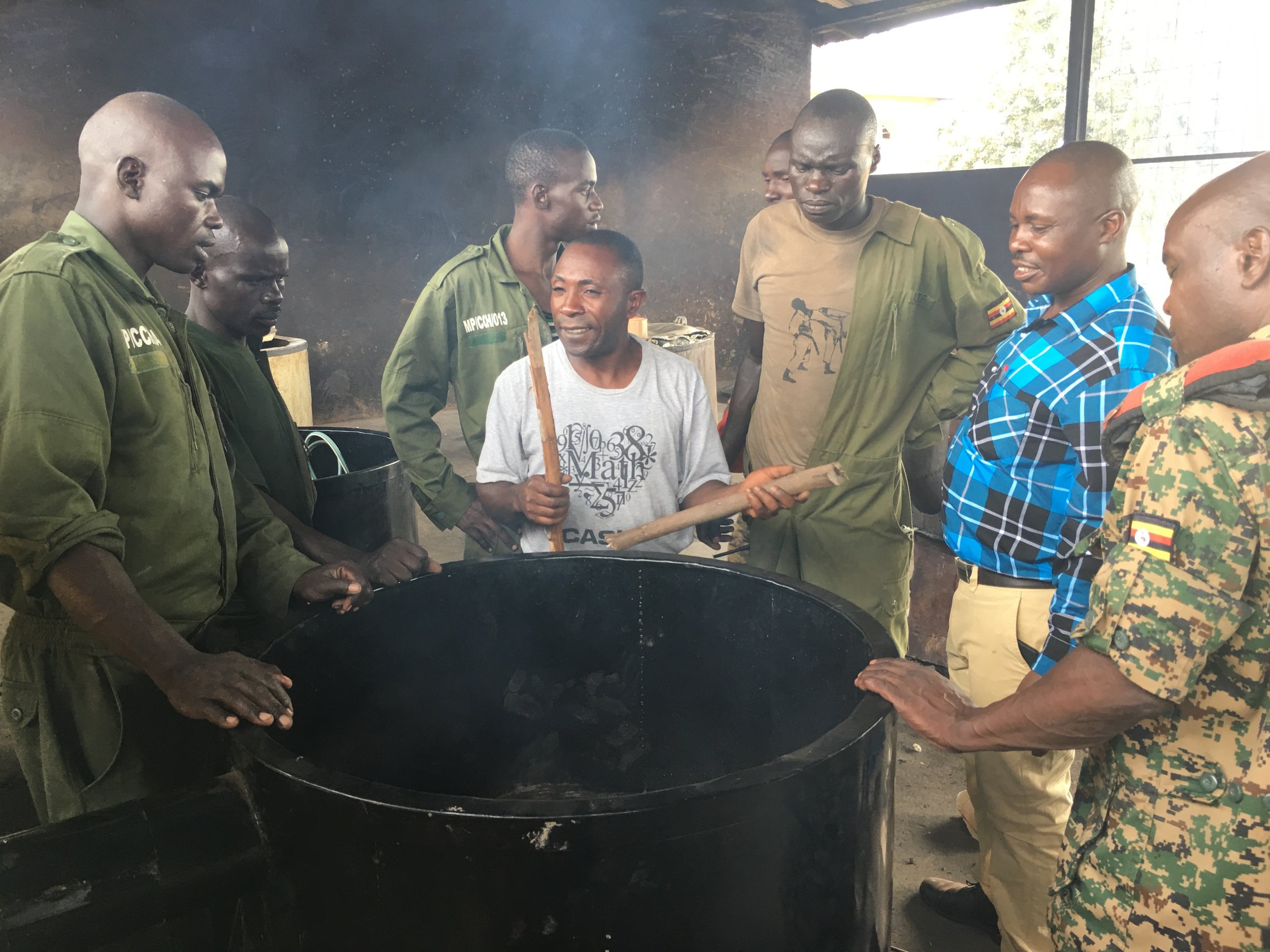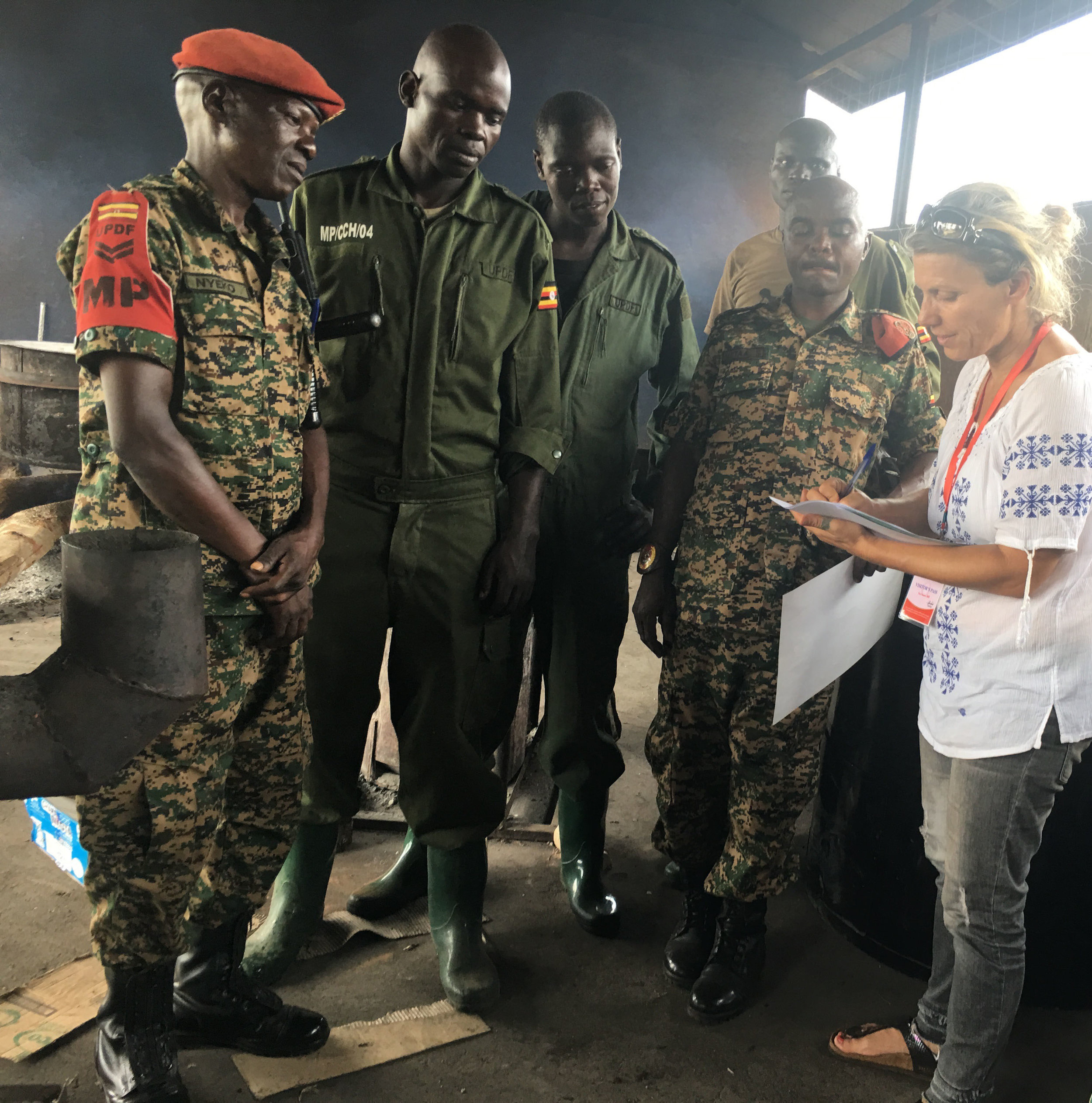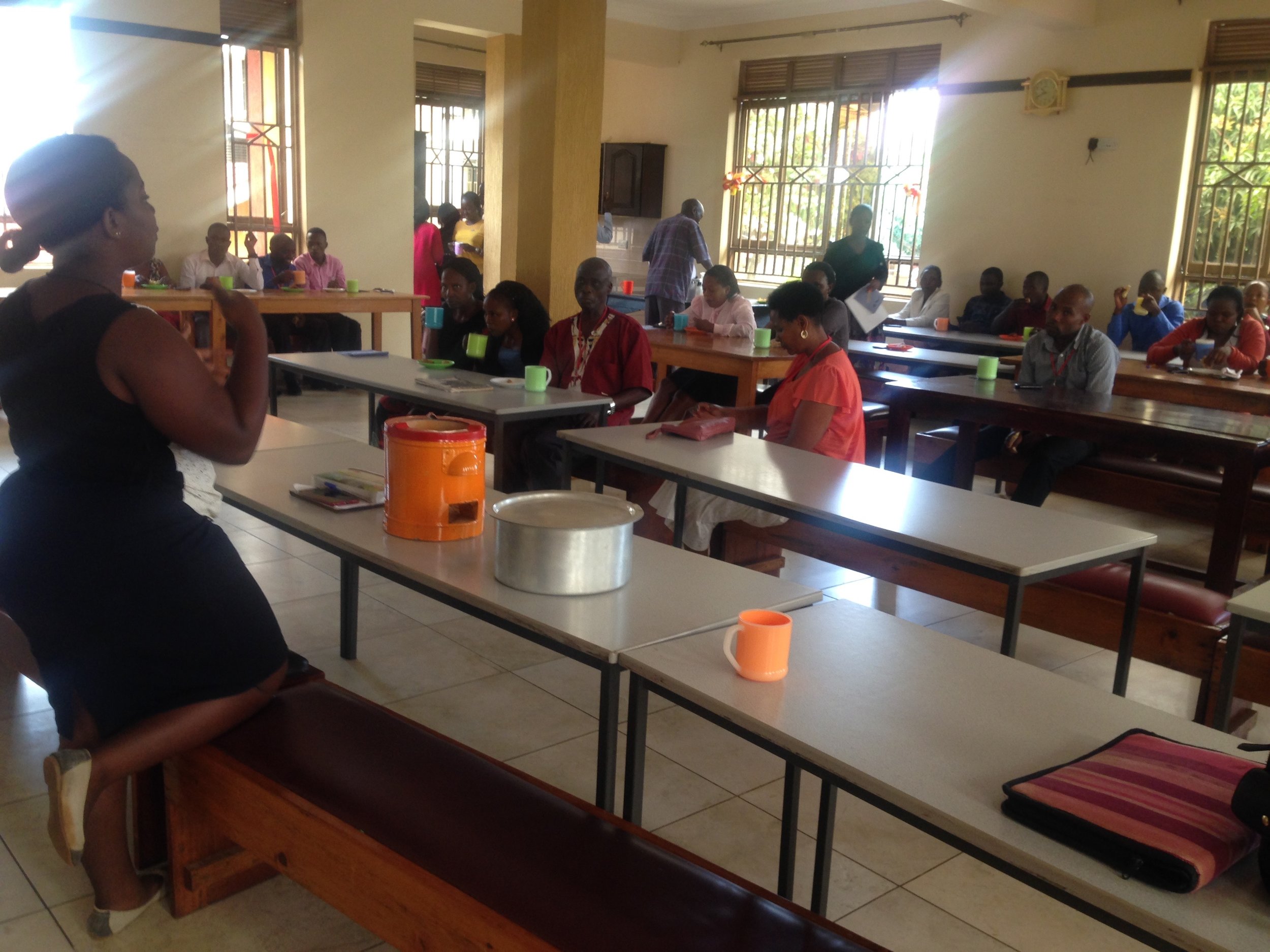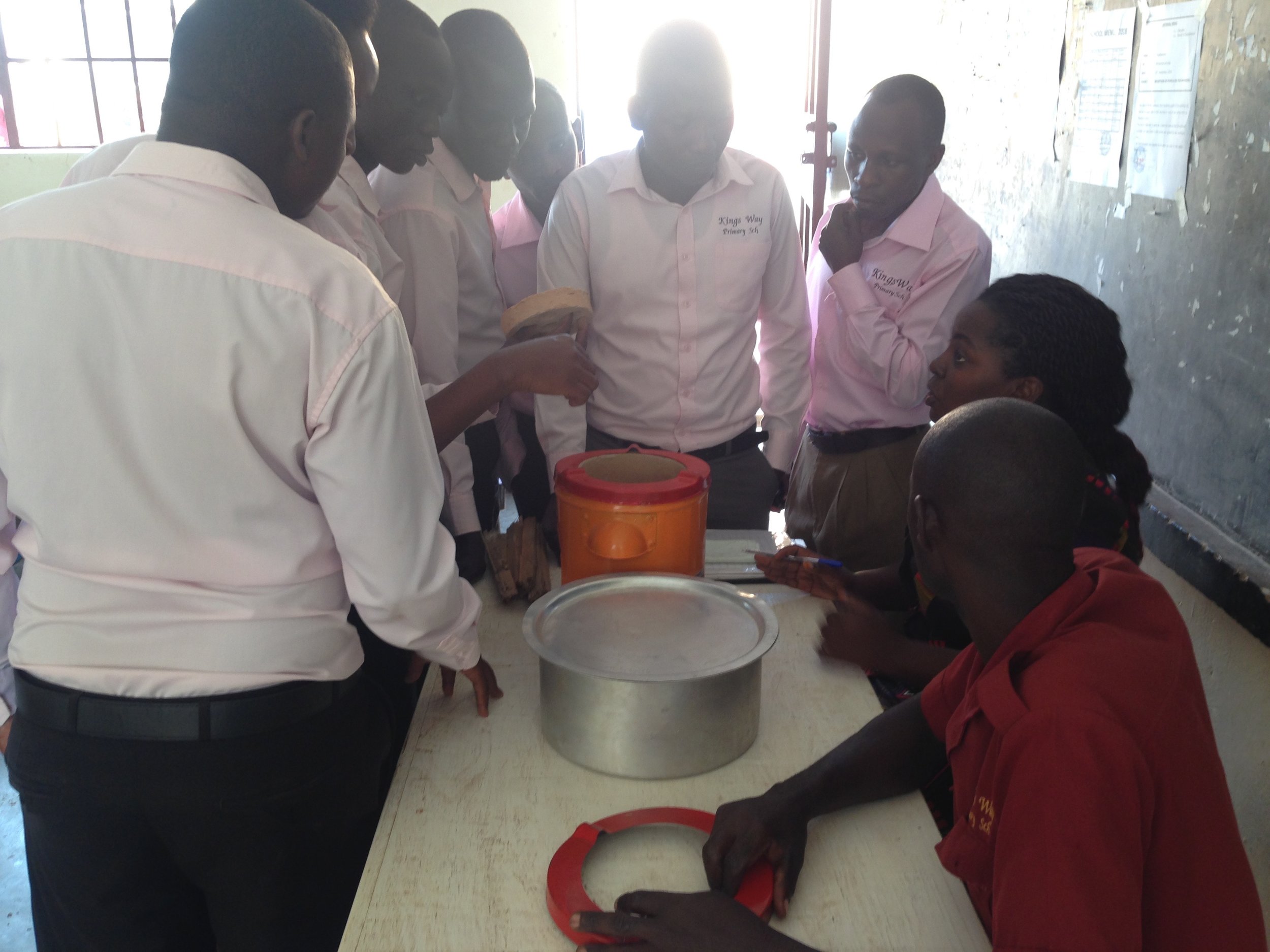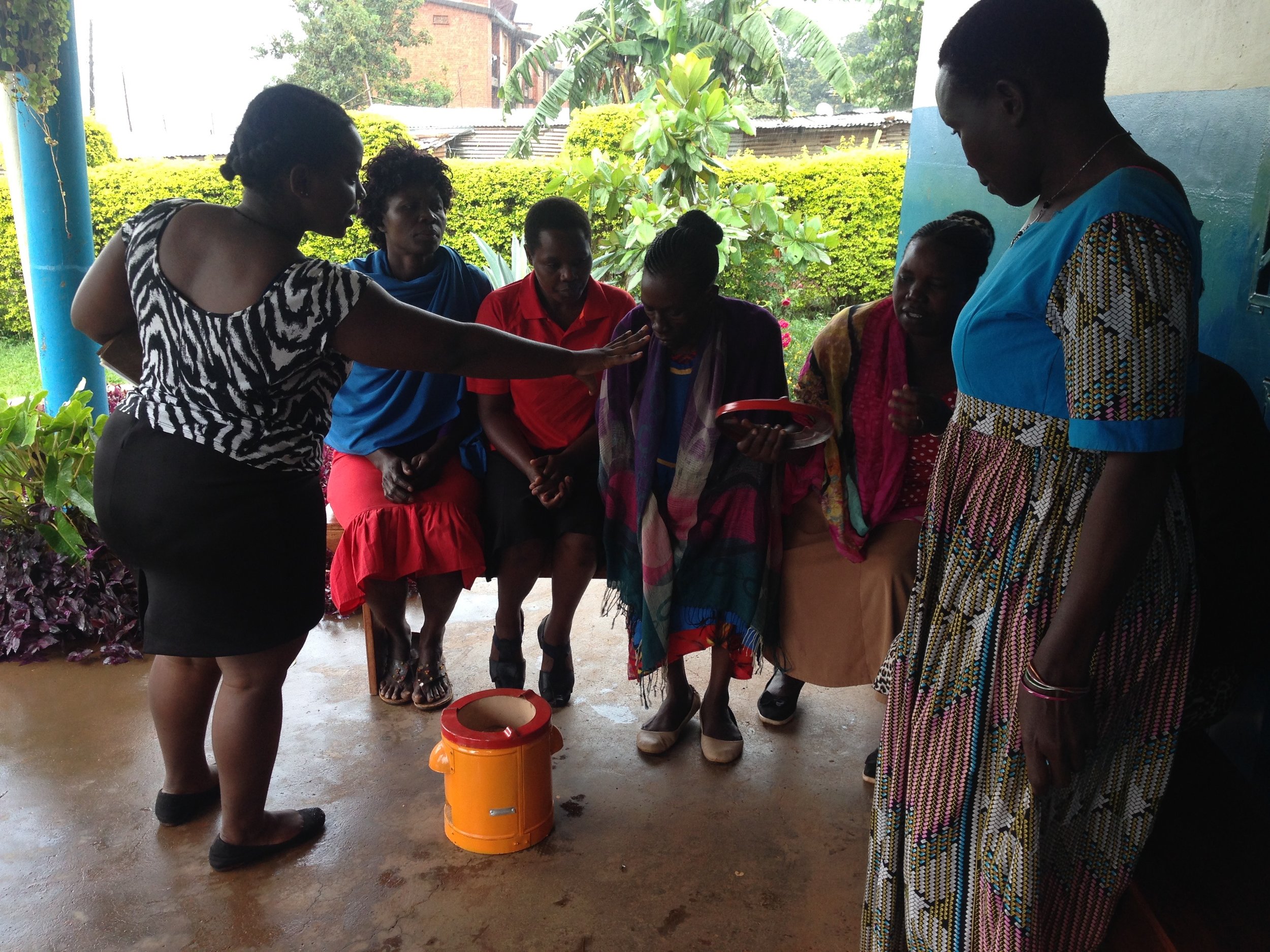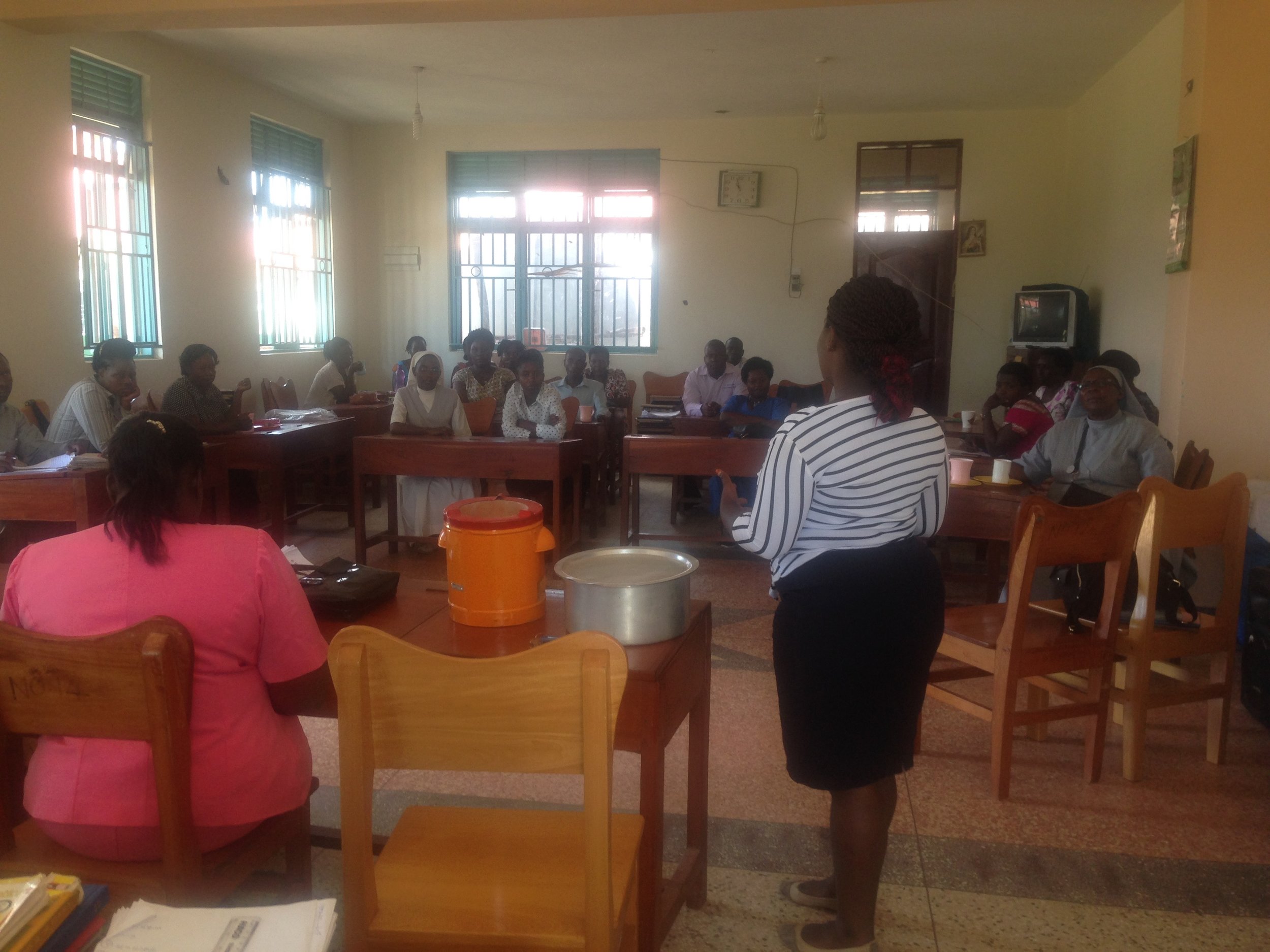As part of the training we provide to those schools participating under our programme, special attention is given to the management of firewood. We developed the “Firewood best practice manual”, which focuses on how to best manage the amount of energy stored in firewood.
The main goal is to get schools to burn dry firewood for their daily cooking activities. Unfortunately, the firewood available in Uganda for schools to purchase is wet, which results in a decrease in its energetic value, while also burning at an inefficient combustion, generating a lot of smoke and an unhealthy environment for cooks and children.
Yesterday we found the children at Kabowa Church of Uganda Primary School helping with sorting the firewood recently purchased. The boys had the responsibility of bringing it inside the kitchen firewood shelter. Children know that to get the most heat value, the school needs to stack the firewood in piles, off the ground, in a covered storage, opened on the sides, to prevent from getting wet from the rain. Children have learnt that by following some simple procedures, and planning ahead, the firewood water content can reduce from 50% when purchased to 30% after 6 months, and 15% after one year, while the energetic value doubles. Here below are some pictures of the boys in action!




